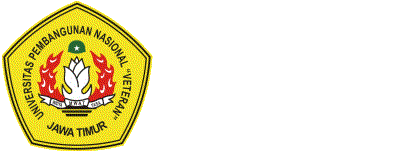NURPRATAMA, HANAVI (2020) LITERASI DIGITAL MAHASISWA TERHADAP BERITA HOAKS, FAKE NEWS, DAN PROVOKASI DI FACEBOOK. Undergraduate thesis, UPN "VETERAN" JATIM.
|
Text (Cover)
Cover.pdf Download (709kB) | Preview |
|
|
Text (Bab I)
Bab 1.pdf Download (246kB) | Preview |
|
|
Text (Bab II)
Bab 2.pdf Restricted to Repository staff only Download (318kB) |
||
|
Text (Bab III)
Bab 3.pdf Restricted to Repository staff only Download (229kB) |
||
|
Text (Bab IV)
Bab 4.pdf Restricted to Repository staff only Download (414kB) |
||
|
Text (Bab V)
Bab 5.pdf Download (101kB) | Preview |
|
|
Text (Dapus)
Dapus.pdf Download (337kB) | Preview |
|
|
Text (Lampiran)
Lampiran.pdf Restricted to Repository staff only Download (420kB) |
Abstract
Social media is a new media that is widely used lately. However, with many who use social media with bad intentions, such as making hoax news, fake news, as well as news of provocation that is concerned with personal or certain interests. In this case students as someone who has gone through the path of higher education should be able to better respond to the situation better, and in certain circumstances students should have media literacy skills so that it is not easy to trust things easily and act correctly. The study, entitled "Student Digital Literacy on Hoaks News, Fake News, and Provocation on Facebook", has a formula for how digital student literacy is towards "hoaks", "fake news", and "provocation" news on Facebook. The purpose of this research is to find out how digital racy of students in responding to hoaks, fake news, and provocation on Facebook. In this research, the communication that occurs involves hoaks, fake news, or provocation with news readers, making the researcher choose CMC (Computer Mediated Communication) Theory as the basis of this research. This type of research is a descriptive qualitative study. Qualitative descriptive research aims to make a descriptive or systematically factual and accurate description of the facts and nature of certain populations or regions. This study uses several methods to collect the required data, namely using interviews and observations to collect data. vii The conclusion of this research shows that Surabaya students have good Digital Literacy skills. This can be seen from the results of Surabaya students' digital literacy research on hoaks, fake news and provocation, students are able to identify hoax news, fake news, and provocation that are widely circulated on Facebook, as well as how students manage the news they just received, things This makes students not easily exposed to hoaks, fake news, and provocations that are widely circulated on Facebook. Also how students who take part to say hoax news, fake news, and provocation that circulated when found, namely by contacting the disseminator and provide the facts of the news, so that the news is not spread to other people. Keywords: Digital Literacy, Negative News, College Student
| Item Type: | Thesis (Undergraduate) | ||||||||
|---|---|---|---|---|---|---|---|---|---|
| Contributors: |
|
||||||||
| Subjects: | P Language and Literature > P Philology. Linguistics > P87 Communication. Mass Media | ||||||||
| Divisions: | Faculty of Social and Political Sciences > Departement of Communication | ||||||||
| Depositing User: | Budiyono Budiyono | ||||||||
| Date Deposited: | 25 May 2021 06:44 | ||||||||
| Last Modified: | 25 May 2021 06:44 | ||||||||
| URI: | http://repository.upnjatim.ac.id/id/eprint/1715 |
Actions (login required)
 |
View Item |
